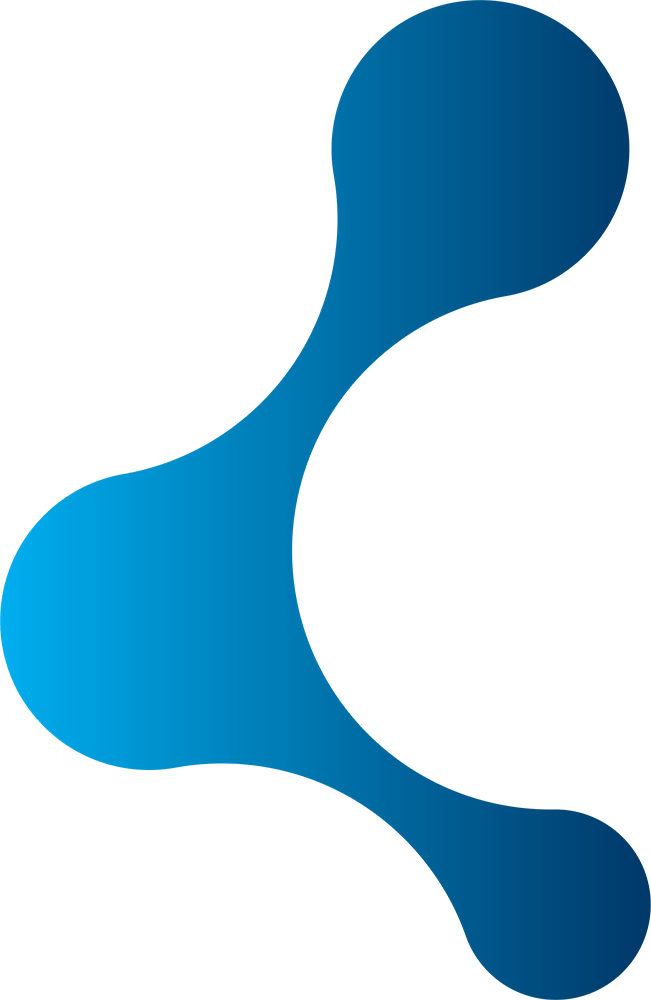Frequently asked questions.
We are here to answer your questions, and to help you feel prepared for your treatment.
Radiotherapy
Does radiation therapy make you radioactive?
External beam radiation therapy does not make you radioactive, and it is perfectly safe for you to be with and around other people, including children, throughout your treatment.
Will I lose my hair?
Radiation therapy is a local treatment, meaning it only affects the area of the body where the radiation is targeted. Unless your radiation treatment is targeted at an area where hair grows, such as your scalp or face, you will not lose your hair. People having radiation therapy for breast cancer may find their underarm hair will fall out if it is near the radiated area, however it will grow back in time.
Can I drive after treatment?
Yes, it is safe for you to drive after you receive radiation therapy treatment. However, if you feel unfit or unwell to do so, it’s important to advise your treatment team immediately.
Will radiation therapy affect my fertility?
This depends on where you are having treatment. If you are a woman having radiation therapy to the abdomen or pelvis, the amount of radiation absorbed by the ovaries will determine the potential impact on your fertility. Radiation to the pituitary gland may also influence fertility, as the pituitary gland normally signals the ovaries to ovulate. Radiation to both testes in men is rare, however if you require this therapy your fertility may be affected. Please speak with your radiation oncologist should you or your partner wish to become pregnant, or if you have fertility concerns.
Does radiation affect pregnancy?
It is important you are not pregnant or become pregnant at any time during radiation therapy, as x-rays for positioning can harm the foetus. If you think you may be pregnant at any time, it is extremely important to discuss this with a member of the radiation therapy team. If you wish to become pregnant after your treatment please discuss this with your radiation oncologist prior to commencing.
Can I father children during radiation therapy?
For men having radiation therapy to their pelvic region, it is advised that you do not father children during treatment. Radiation therapy may damage your sperm, which can lead to birth abnormalities. If you wish to father children after this treatment, please discuss this with your radiation oncologist prior to commencing.
What are the side effects of radiation therapy?
These are predictable and the team will prepare and help minimise these for you. Our onsite nursing team are available to support you through any side effects that you may experience. It is important to remember that most side effects will resolve once treatment is completed. Side effects will discussed in details with your doctor in your treatment planning appointments.
Will I feel nauseated?
If you have radiation therapy to your abdominal region, you may get an upset stomach and feel nauseated. This will usually resolve when your course of treatment is completed. If you notice you are feeling nauseated for a prolonged period of time, please inform our team so we can suggest ways to manage this.
How long does radiation therapy treatment take?
Radiation therapy is scheduled over an extended period of time, usually from weeks to months, enabling sessions to be as short as possible and for healthy cells to recover. A treatment session may only last 10 to 15 minutes.
Chemotherapy
How does chemotherapy work?
Chemotherapy works by killing cells that are rapidly dividing, such as cancer cells. As well as killing cancer cells, chemotherapy also kills normal cells that are rapidly dividing. However, unlike cancer cells, normal cells can repair the damage and can recover.
Does it cause side effects?
Chemotherapy destroys cancer cells. However, some healthy cells are also damaged, and it is this damage that causes many of the more common side effects of chemotherapy. Side effects vary depending on the drugs used and the individual person. Most are temporary and can be treated or managed.
What are the common side effects?
Anaemia, Constipation, Diarrhoea, Fatigue (tiredness), Mouth sores or ulcers, Increased risk of infection, Increased risk of bruising, Hair loss, Loss of appetite, Nausea and vomiting, Skin sensitivity to sunlight (specific drugs only), Nerve damage (specific drugs only).
Will I lose or gain weight as a result of my treatment?
Each person responds differently to chemotherapy, and this also applies to weight. Some people may lose weight, while others may gain weight. Your cancer may also affect your weight. If you have any concerns about your weight during treatment, please raise them with your doctor.
Will I lose my hair as a result of my treatment?
Some people receiving chemotherapy will lose their hair, depending on the type of drugs you receive. Your doctor or nurse will be able to tell you whether your particular treatment will cause hair loss.
Am I able to take vitamins and complementary medicines?
Some vitamins and medicines can interfere with the effects of chemotherapy. Please provide your doctor with a list of the medicines you are currently taking, including over-the-counter medicines. If you start taking any new medicines during your treatment please let your doctor know.
Can I exercise during my treatment?
It’s recommended you do some light exercise, such as walking, to help manage fatigue and improve well being. Studies have shown that exercising during your therapy is associated with an improved outcome.
Can I continue to work while I’m being treated?
Your ability to continue to work will depend on the nature of your work, your type of treatment and how well you feel during your treatment. Please discuss this with your doctor.
Are there certain activities I won’t be able to do during treatment?
There may be certain activities you won’t be able to participate in during your treatment. This will depend on the treatment you are having, your diagnosis and your blood counts at the time. If you are unsure about whether you should take part in a particular activity, please speak with your doctor or nurse.
Should I avoid people who are unwell while I’m being treated?
Chemotherapy can affect the production of blood cells in your body, including your white blood cells, which protect against infection. When your white blood cells are low, you are more at risk of developing a cold or infection. During this time, it’s important to avoid people who are unwell.
Fees
As treatment length and nature varies greatly between patients, costs of treatment also differ. If you would like information on the fees associated with the treatment you are to receive, please contact us or speak with one of the care team.
Radiation Therapy is generally an outpatient procedure, whereas Chemotherapy is frequently an inpatient procedure, therefore there are large differences between the billing methods used for these two forms of treatment. These rules are laid down by the government and health funds and are what determines your eligibility for coverage and the level of financial assistance available to you.
Helpful
links.
Australian Centre for Heart Health
A not for profit, independent Medical Research Institute (iMRI) dedicated to improving the lives of people with heart disease and reducing repeat cardiac events.
Australian Melanoma Research Foundation
The mission of AMRF is to significantly contribute to the prevention, early detection and treatment of melanoma in Australia and to improve patient outcomes.
Australian Men’s Shed Association
The Australian Men’s Shed Association is the national service provider to more than 1000 Men’s Sheds in Australia – providing practical support, specialised services and resources.
Bowel Cancer Australia
Bowel Cancer Australia provides a wide range of support services to people affected by bowel cancer. They offer a helpline where you can speak with a range of health professionals including nurses, nutritional advisors and other related professionals. Bowel Cancer Australia also offers peer-to-peer support networks, online forums and shares patient stories. Tel: 1800 555 494
Brain Tumour Alliance Australia (BTAA)
BTAA seeks to provide peer support to people living with a brain tumour and to their carers, their families, and friends. BTAA provides information resources for newly diagnosed patients and can assist with referrals to the most appropriate support services in their area.
Breast Cancer Network Australia
Breast Cancer Network Australia is a national organisation that works to ensure Australians affected by breast cancer receive the very best support and information appropriate to their individual needs. Tel: 1800 201 528
Camp Quality
Camp Quality provide services and programs which are created specifically to support children aged up to 15 years, who are dealing with their own cancer diagnosis, or the diagnosis of someone they love, like a brother, sister, mum, dad or carer. Fun experiences, education, specialised cancer care, counselling and a supportive community; in-hospital, online, at school or at the camps.
Can Assist
Can Assist is committed to ensuring that all people, regardless of where they live in NSW, have equitable access to cancer treatment and care. By providing financial assistance, practical support and raising awareness of the inequities, our volunteer network ensures that country people are given the same opportunities and treatment choices as those who live in city centres.
Cancer Australia
Cancer Australia was established by the Australian Government in 2006 to benefit all Australians affected by cancer, and their families and carers. Cancer Australia aims to reduce the impact of cancer, address disparities and improve outcomes for people affected by cancer by leading and coordinating national, evidence-based interventions across the continuum of care.
Cancer Council
Cancer Council offer a wide-range of information, support services and groups, advice, accommodation options and practical assistance for those with cancer. The Cancer Council offers a free telephone information and support service. Specially trained professionals provide access to a wide-range of cancer information, support services and groups, practical advice, counselling and can assist with accommodation requirements. Tel: 13 11 20
Cancer Voices Australia
Cancer Voices Australia is a national consumer advocacy organisation representing Australians affected by cancer. It aims to ensure the voices of people, their carers and families affected by cancer are heard at a national level. There are also Cancer Voices organisations in most states and territories.
Canrevive
CanRevive Inc. is a public benevolent institution, established in 1995 at Haymarket Sydney, by two cancer survivors and one carer to support Chinese speaking people through their cancer journey. Its aim is to help to minimize the impact of cancer on patients and their families by providing information and emotional support to cater for their cultural and linguistic needs.
CanTeen
CanTeen supports, develops and empowers young people between the ages of 12-24 living with cancer. They provide counselling, support, information and useful resources for young people living with cancer, their siblings or children whose parent/ primary carer has cancer. Tel: 1800 835 932
Carers Couch
Carers Couch recognises the importance of carer wellbeing. That their needs have to be recognised as significant in the healthcare industry. And that independently, no one service could do all this alone. Which is why Carers Couch have created a collaborative ecosystem for the healthcare sector to work together. Carers Couch provide carers of cancer patients access to the most qualified and research-backed resources to help improve their wellbeing.
Head and Neck Cancer Australia
Head and Neck Cancer Australia is the only Australian charity dedicated to providing education and support to people living with head and neck cancer.
Healthdirect Australia
Healthdirect Australia provide trusted health services that are easily accessible via multiple channels — helplines, video call solutions, websites, service finders, mobile applications and social media networks. These services are available to all Australians, especially those who might struggle to access face-to-face health services, particularly in the after-hours period and in rural and remote regions.
Heart Foundation
The Heart Foundation saves lives and improves health through funding world-class cardiovascular research, guidelines for health professionals, building community awareness and government/industry advocacy.
Heart Support Australia
Heart Support - Australia is the national support organisation for people with a heart condition, their families and carers. Whether preparing for surgery, recuperating from a heart event or making lifestyle changes to optimise quality of life, Heart Support – Australia members offer support, encouragement, and information based on their own experience.
Her Heart
Her Heart is Australia’s only not-for-profit (NFP) focused on the prevention of women’s heart disease. The organisation is committed to working with women to raise awareness of heart disease – the biggest killer of women around the world – and increase women’s chances of avoiding and/or surviving this ‘silent killer’.
Leukaemia Foundation
Leukaemia Foundation provides personalised and practical support to people affected by blood cancers including useful information, emotional and educational support, as well as accommodation and transport options. Tel: 1800 620 420
Live Life Get Active (LLGA)
Supporting the health and wellbeing of local communities. The LLGA programmes offer free unlimited access to camps, live streams, nutritional plans, and information to motivate and educate on how to create and enjoy a healthier life, both during and after cancer treatment.
Look Good Feel Better
Look Good Feel Better is a free national community service program, run by the Cancer Patients Foundation, dedicated to teaching cancer patients how to manage the appearance-related side-effects caused by treatment for any type of cancer.
Lung Foundation Australia
Lung Foundation Australia is the national consumer advocacy organisation, representing Australians affected by lung disease.
McGrath Foundation
The McGrath Foundation raise money to fund McGrath Breast Care Nurses in communities right across Australia. They currently have 162 McGrath Breast Care Nurses, who help individuals and their families experiencing breast cancer by providing physical, psychological and emotional support, for free.
Melanoma Institute Australia
Melanoma Institute Australia (MIA) is a non-profit organisation dedicated to preventing and curing melanoma through innovative, world-class research, treatment and education programs. MIA is a national affiliated network of melanoma researchers and clinicians based in Sydney.
Melanoma Patients Australia
The organisation was founded by two young melanoma patients, Daniel Belcher and the late Brent Grace, and officially launched on 6th July 2006. The purpose of Melanoma Patients Australia is to support, connect and advocate for Australians affected by melanoma and works towards its prevention.
National Breast Cancer Foundation
The National Breast Cancer Foundation (NBCF) funds all forms of research into the prevention and treatment of breast cancer.
NeuroEndocrine Cancer Australia
The only Australian not-for-profit medical charity focused on neuroendocrine tumours (NETs). Their mission is to: assist and support patients and carers; raise awareness and knowledge of NETs within the medical community and general public; and encourage and support Australian research in the area of neuroendocrine cancers.
NSW Health
The New South Wales Ministry of Health, branded NSW Health, is a ministerial department of the New South Wales Government. NSW Health supports the executive and statutory roles of the Minister for Health, the Minister for Regional Health, and the Minister for Mental Health
Ovarian Cancer Australia
Ovarian Cancer Australia is a national not-for-profit organisation providing support and advocacy for people affected by ovarian cancer and is the peak body for ovarian cancer awareness and prevention.
Palliative Care Australia
The national peak body for palliative care, Palliative Care Australia represents all those who work towards high quality palliative care for all Australians. Working closely with consumers, members, organisations and the palliative care workforce, Palliative Care Australia aim to improve access to, and promote the need for, palliative care.
Pancreatic Cancer Alliance
The Pancreatic Cancer Alliance is a collaborative voice raising awareness of pancreatic cancer in Australia. Cancer Australia is a Member of the Pancreatic Cancer Alliance.
Prostate Cancer Foundation Australia
Prostate Cancer Foundation Australia is a national organisation acting to reduce the impact of prostate cancer on Australian men, their families, carers and the community. The organisation supports prostate cancer patients and their families by providing access to information and resources, support groups and prostate cancer specialist nurses. Tel: 1800 220 099
Rare Cancers Australia
Rare Cancers Australia is a charity whose purpose is to improve the lives and health outcomes of Australians living with rare and less common cancers.
Redkite
Redkite is a lifeline for families facing childhood cancer, it provides financial assistance, emotional support and educational assistance to children with cancer and their families as well as scholarships available for specific educational goals.
SunSmart
Established in 1988, SunSmart is one of the longest running skin cancer prevention programs in the world. SunSmart provide leadership and innovation in skin cancer prevention and early detection using a multi-faceted approach. Through long held partnerships, community programs, campaigns and advocacy, the organisation support Victorians to be SunSmart, reducing skin cancer rates and saving lives.
Targeting Cancer
The Radiation Oncology Targeting Cancer Campaign is an initiative of the Faculty of Radiation Oncology of the Royal Australian and New Zealand College of Radiologists (RANZCR). The aim is to increase awareness of radiation therapy and an effective, safe and sophisticated treatment for cancer.


